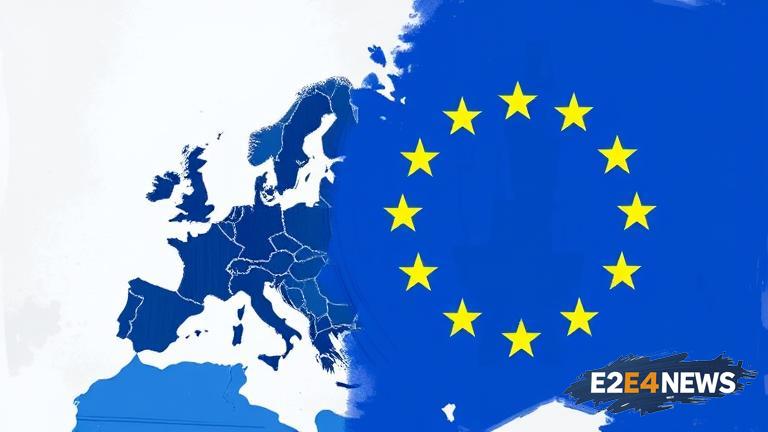The European Union has reaffirmed its commitment to regulating the tech industry, despite facing threats of tariffs from the US. In a statement, the EU defended its right to impose regulations on tech companies, citing the need to protect its citizens’ data and promote fair competition. The EU’s stance comes in response to the latest tariff threats from the US, which has been critical of the EU’s regulatory approach. The US has argued that the EU’s regulations are unfair and discriminatory, and has threatened to impose tariffs on EU goods in retaliation. However, the EU has maintained that its regulations are necessary to ensure a level playing field and protect its citizens’ rights. The EU has also pointed out that its regulatory approach is designed to promote innovation and competition, rather than stifle it. The tech industry has been a major focus of the EU’s regulatory efforts, with the bloc introducing a range of measures aimed at promoting transparency and accountability. These measures include the General Data Protection Regulation (GDPR), which gives citizens greater control over their personal data, and the Digital Services Act, which aims to promote fair competition and reduce the spread of disinformation. The EU has also introduced regulations aimed at promoting sustainability and reducing the environmental impact of the tech industry. Despite the US’s criticism, the EU’s regulatory approach has been widely praised by consumer groups and digital rights activists. They argue that the EU’s regulations are necessary to protect citizens’ rights and promote a more sustainable and equitable digital economy. The EU’s stance on regulating the tech industry has also been supported by other countries, including Australia and New Zealand. These countries have introduced similar regulations, citing the need to protect their citizens’ data and promote fair competition. The US’s tariff threats have been widely condemned, with many arguing that they are unfair and could have a devastating impact on the global economy. The EU has warned that it will retaliate against any tariffs imposed by the US, which could lead to a trade war. A trade war would have significant consequences for both the EU and the US, with many businesses and consumers likely to be affected. The EU has called for a negotiated settlement, arguing that tariffs are not the answer to the US’s concerns. Instead, the EU has proposed a range of measures aimed at promoting cooperation and reducing tensions. These measures include the establishment of a new trade agreement, which would provide a framework for regulating the tech industry and promoting fair competition. The EU has also proposed the creation of a new digital governance framework, which would provide a set of common rules and standards for the tech industry. The framework would aim to promote transparency and accountability, while also reducing the risk of regulatory fragmentation. The EU’s proposals have been welcomed by many in the tech industry, who argue that they provide a necessary framework for promoting innovation and competition. However, the US has yet to respond to the EU’s proposals, and it remains to be seen whether a negotiated settlement can be reached. In the meantime, the EU will continue to defend its sovereign right to regulate the tech industry, and will take all necessary measures to protect its citizens’ rights and promote a more sustainable and equitable digital economy.
